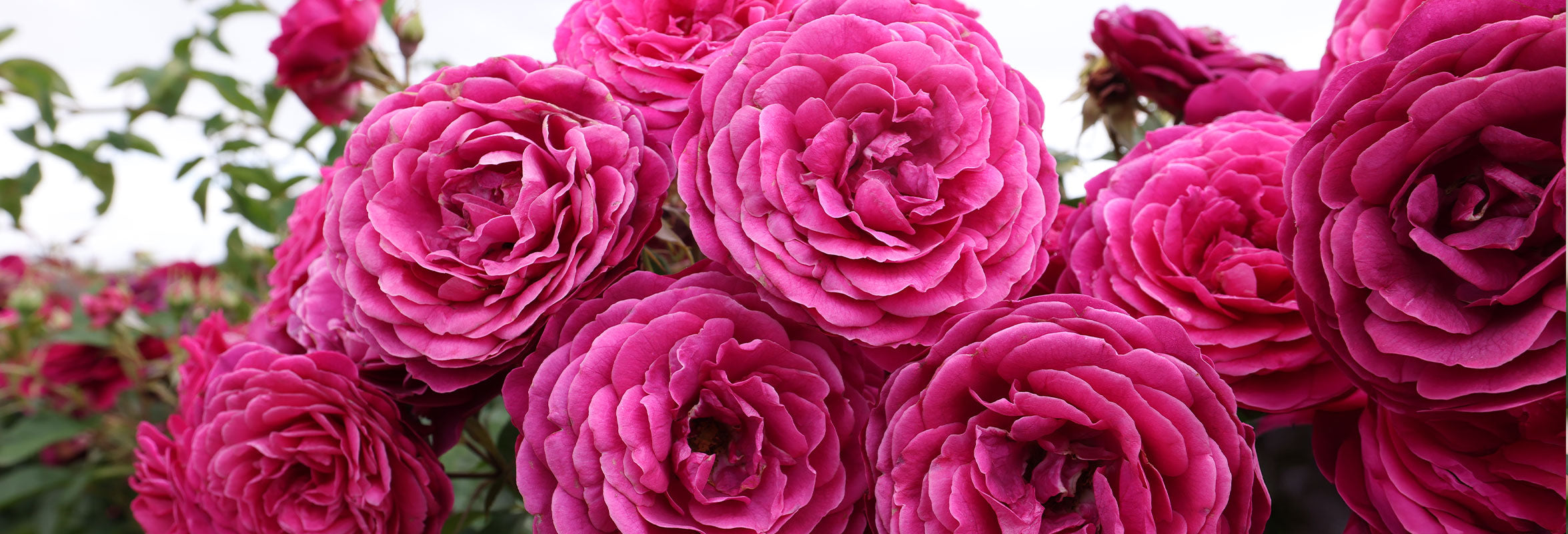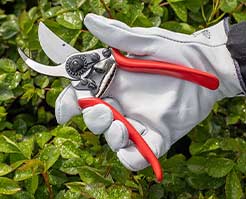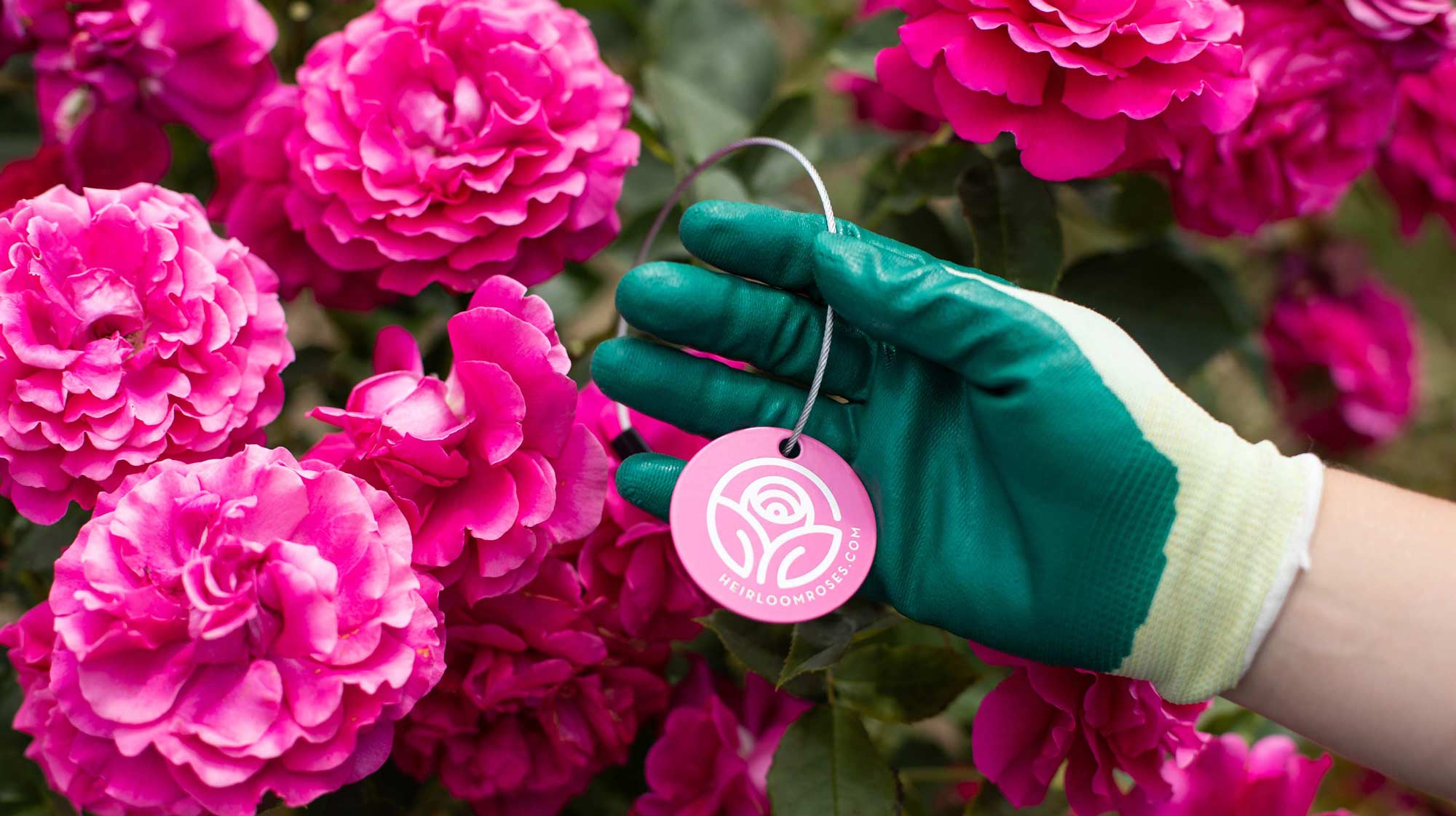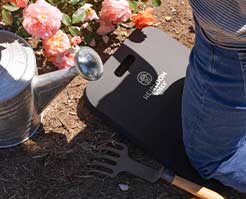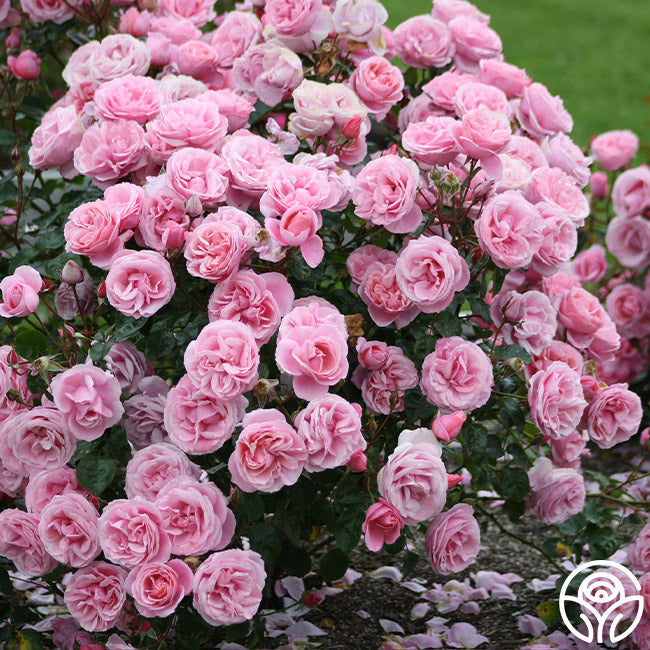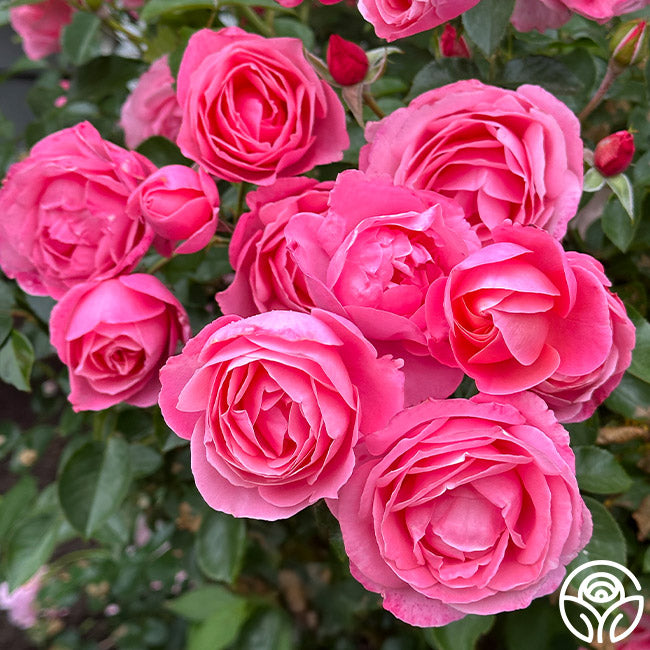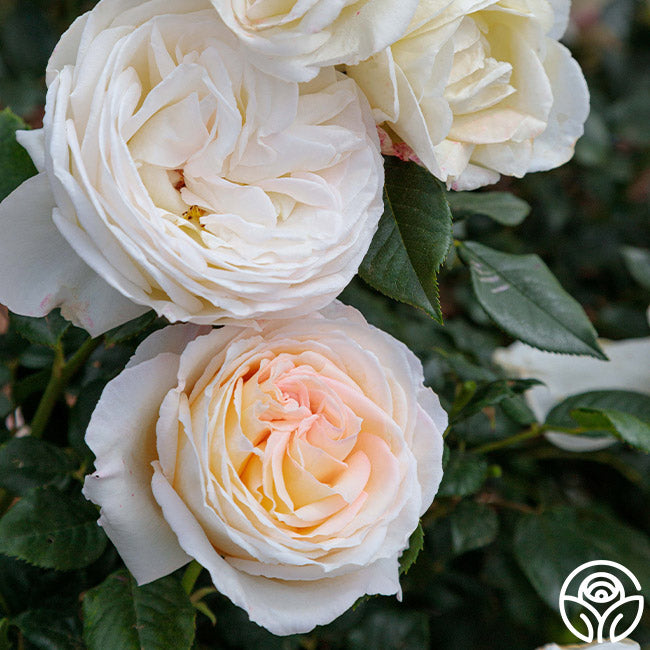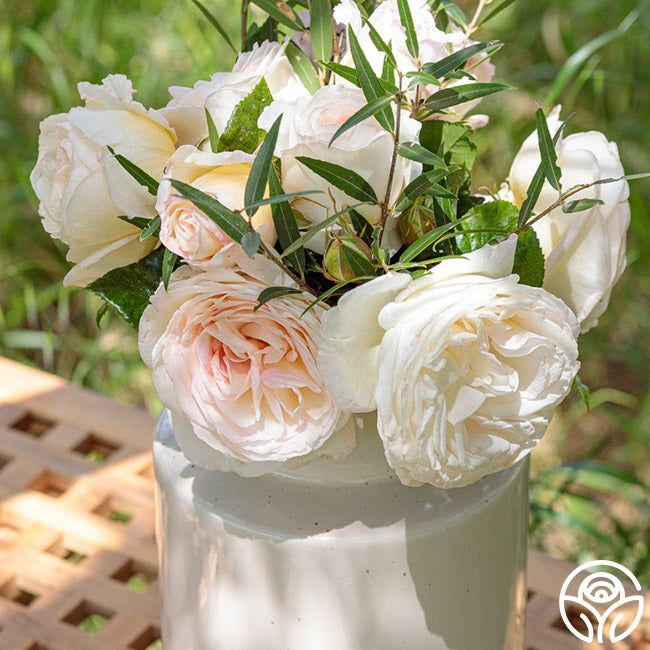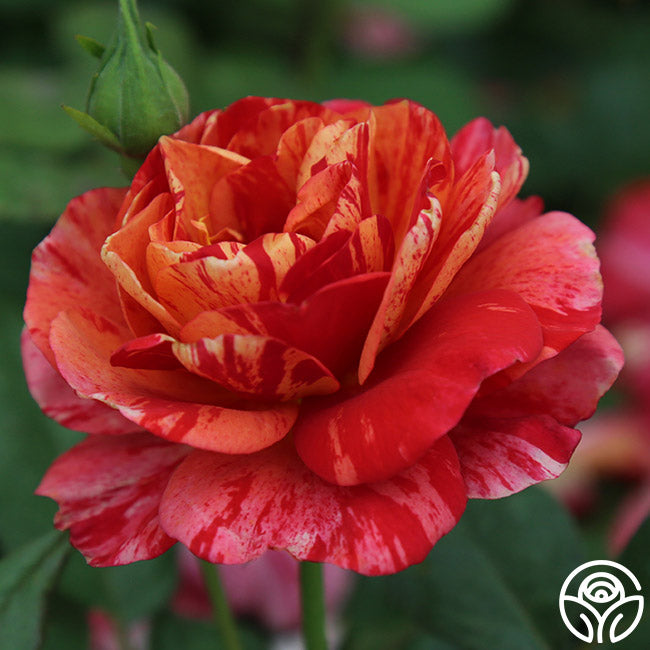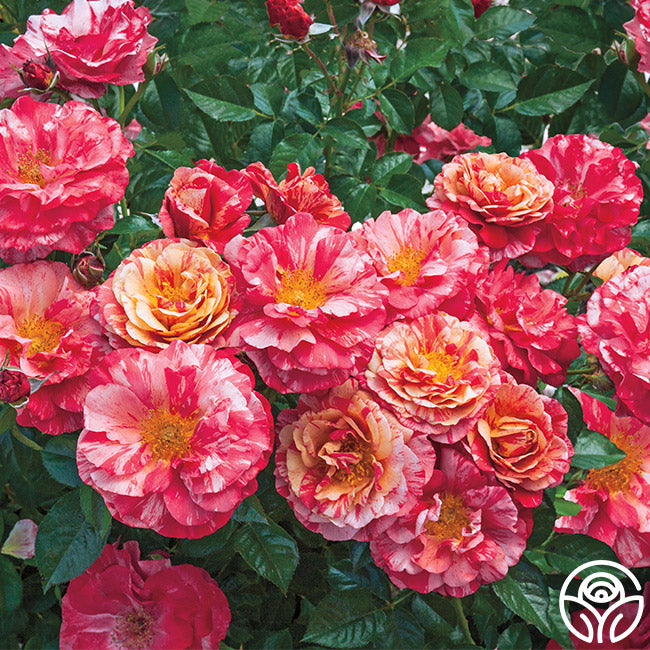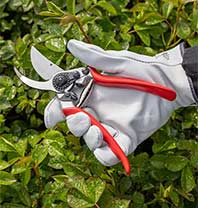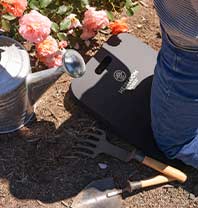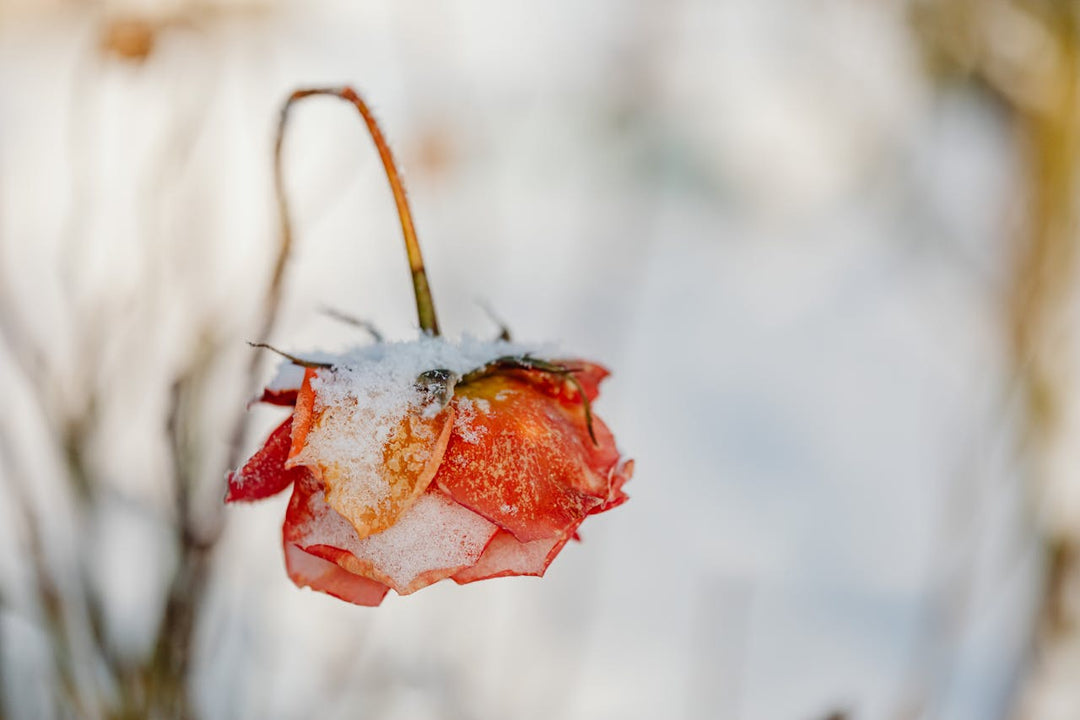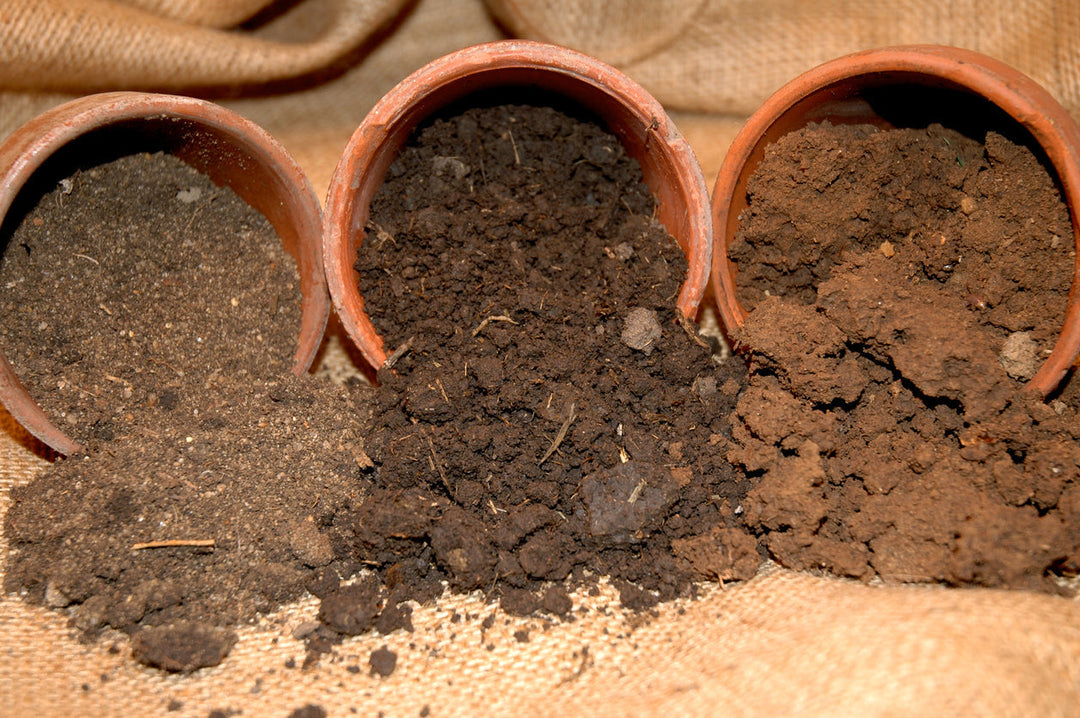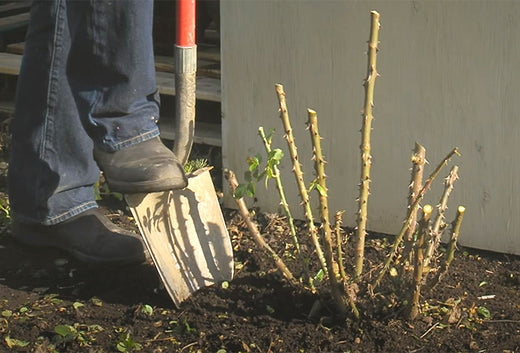What Is Rose Canker

Rose cankers develop when pathogenic fungi enter a pruning cut or open wound on the canes and colonize. While canker is not necessarily detrimental to the plant as a whole, it can cause a lot of damage if care is not taken to prevent and treat it effectively. Canker can be potentially lethal for grafted roses if the infection enters the bud union, however, our roses are grown on their own roots and will be more resistant toward fungal infections and other diseases.
One of the most common ways that roses develop canker is through pruning cuts, especially if you do not clean your pruners regularly. Open pruning cuts are a magnet for fungal infections, so it is extremely important to disinfect your tools after each use. The open cut will naturally form a callous to protect the plant from infection when pruned correctly. Cankers can also form on leaf or thorn scars or other injury to the canes that results in an open wound where spores can colonize. The spores can also be spread by wind, rain, or irrigation water so it is important to take steps to actively prevent cankers from developing on your roses and letting the infection take over.
If your rose already has signs of canker and infection, you will want to prune off the affected canes immediately, making sure to disinfect your pruners in between EACH cut to ensure the spores are not spread. When pruning back canes that have developed cankers, make an angled cut about a quarter-inch above a bud eye, making sure to remove all of the infected tissue and disposing of it. This will allow the pruning cut to form a callus and promote new, healthy growth from the bud eye. Follow with a natural fungicide spray to prevent the infection from returning.
Healthy plants are less likely to develop cankers, which is why prevention is just as important as treating the infection. Roses are more susceptible to canker during the winter months when the plants are less active, meaning you will likely need to look out for any signs of infection that developed over the dormant season and prune it back in the spring to get your roses off to a strong start. Plants that are weak and planted in unhealthy soil will have a much harder time fighting off fungal infections, so boosting the nutrients in the soil and fertilizing regularly will go a long way in keeping the roses healthy and able to fight off infection easily. It is also important to properly space your roses to allow for proper circulation and mitigate the spread of disease.



